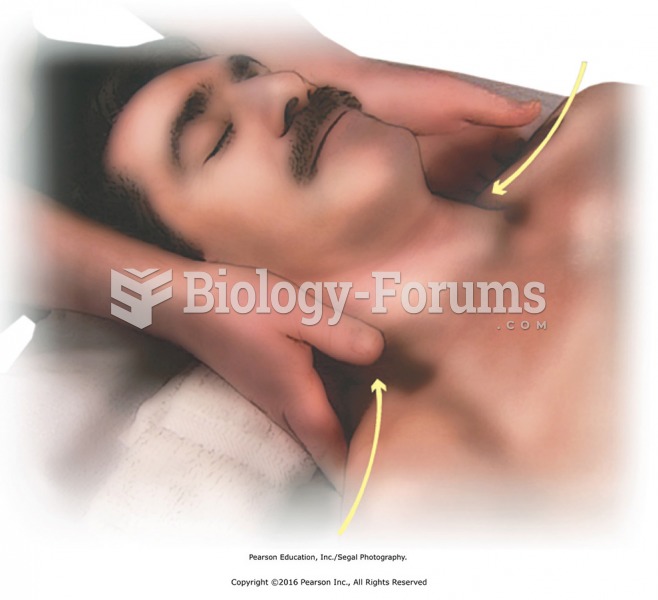|
|
|
Immunoglobulin injections may give short-term protection against, or reduce severity of certain diseases. They help people who have an inherited problem making their own antibodies, or those who are having certain types of cancer treatments.
Eat fiber! A diet high in fiber can help lower cholesterol levels by as much as 10%.
Vaccines prevent between 2.5 and 4 million deaths every year.
Certain topical medications such as clotrimazole and betamethasone are not approved for use in children younger than 12 years of age. They must be used very cautiously, as directed by a doctor, to treat any child. Children have a much greater response to topical steroid medications.
This year, an estimated 1.4 million Americans will have a new or recurrent heart attack.







